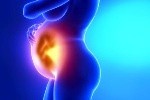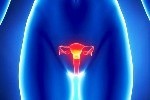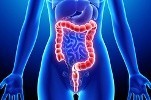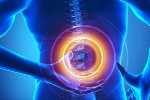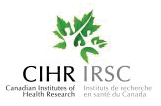Traditional Chinese Medicine (TCM)
Originated in ancient China and has been practiced for more than 5000 years. It evolved continuously, based on thousands of years of clinical experiences, with a well defined macroscopic theory to guide its practice in preventing and fighting human illness. It includes several treatment modalities such as acupuncture, herbal medicine, moxibusion and meridian massage.
Acupuncture is the first treatment modality recognized globally for its effectiveness in managing pain. For other unmet clinical needs, main stream medicine has started to explore other treatment modalities in TCM. With the appreciation of philosophy and theory behind TCM and increasing evidence to indicate its effectiveness and knowledge of its action.
TCM is steadily becoming popular and gaining general acceptance in the treatment of various diseases globally. TCM and Western medicine have their own unique approaches in the treatment of
infertility, which could be integrated for a better treatment of infertile patients.
The Basic Theory of TCM
TCM theory is based on a number of philosophical constitutions including the theory of Yin-Yang and Qi-blood, the Five Elements, Meridian system, Zang Fu organ theory, and others. The theory
approaches human health from macroscopic and integrated parts of view due to the lack of modern molecular technology. It is an early form of integrated medicine and system biology.
The basic concept of TCM has originated from the theory of Yin-Yang. Yin-Yang represents two opposite yet complementary entities, which kept balancing to reach homeostasis. Imbalance of Yin and Yang
off a boundary triggers off diseases and accounts for their progression.
The current chaotic concept is consistent with this theory. For instance, relatively dominant Yang can be linked to inflammation caused by pathogenic infection and manifested in high fever, sweating,
reddish complexion and rapid pulse.
On the contrary, relatively dominant Yin can be linked to insufficient immunity or poor blood circulation and manifested in cold symptoms such as lassitude, floating, whitish complexion, cold limbs
and slow and weak pulse.
In general, how to maintain the perpetual dynamic equilibrium of Yin and Yang in individuals is the critical task for a TCM practitioner for the sake of maintaining the health condition of
patients.
The Concept of 'Blood' and ' Qi'
In addition to Yin and Yang, Qi and blood are also important concepts in TCM. The scientific definition of ‘Qi’ and ‘blood’ is not well defined in today’s biochemical and molecular microscopic terms.
Qi is considered as a vital energy that flows through the human body and universe. This could include magnetic electronic force or biochemical process. It is the most indispensable energy that makes up the vitality of the body and maintains life activities.
The physiological function of Qi is linked to the energy of the body to protect from the invasion of various pathogens and produce and propel body fluids and blood to different viscera and organs regularly.
Blood includes the blood circulation inside the blood vessels, stasis of blood vessels in different tissues and platelet activities, and so on. Qi and blood are coupled just like Yang and Yin. Chinese medicine is based on the concept of Qi, blood, Yin, and Yang.
By understanding the meaning of each concept and the way they relate to each other, one will be able to appreciate the treatment rendered in TCM.
The Treatment of Infertility in Tradional Chinese Medicine
Infertility is defined as the inability of a couple under the age of 35 to become pregnant after 2 years of unprotected sexual intercourse. The factors associated with infertility could be very complicated.
Basically, infertility is very closely related to the kidney essence from the view of TCM. In TCM, the kidney governs not only the urinary system but also the reproductive and endocrine systems. For a female to have a normal and healthy menstrual cycle leading to successful pregnancy, it would only occur when kidney Qi is abundant as well as there is sufficiency of both essence and blood. Any factors that affect the kidney essence will fail to conceive a fetus.
TCM involved in the treatment of infertility relies upon a carefully differential and personalized diagnosis (Chinese syndrome differentiation), in combination with herbal formulas or acupuncture to resolve underlying patterns of disharmony in an individual. The Chinese syndrome differentiation involves the analysis and synthesis of the clinical data obtained by four examination methods, that is, inspection, listening and olfactory, inquiry and unique pulse-taking to further investigate the nature of the disease.
A chinese practitioner will then prescribe the formula or acupoints for patients according to the outcome of Chinese syndrome differential diagnosis. Most importantly, TCM can be used coincidently with Western medical approaches to make the treatment of infertility more effective by improving and balancing the general health of an individual. Particularly in Asia, TCM used alone or integrated with Western medicine is gradually becoming a popular complementary treatment modality.
The Effect of Hormonal Regulation by Traditional Chinese Medicine
Insufficient amount of gonadotropin-releasing hormone (GnRH), stimulated by the hypothalamus, would often result in infertility in both women and men, as GnRH is responsible for triggering ovulation and sperm production. TCM could have an effect in the regulation of GnRH. A recent study indicates that acupuncture could trigger endorphin production to cause analgesia, which can be antagonized by the narcotic antagonist, naloxone.
As the localization of both the hypothalamic b-endorphin and the GnRH are centered in the arcuate nucleus, acupuncture treatment that influences b-endorphin levels in this brain locus could in turn affect GnRH secretion and subsequently have impact on the menstrual cycle.
In addition, several studies also have discussed the relationship of neuropeptide, including b-endorphin, in the regulation of GnRH secretion. The in-vivo studies of 'rats’ and rabbits’
neuroendocrine signaling systemdemonstrated the effectiveness of acupuncture treatment in normalizing GnRH and influencing peripheral gonadotropin levels.
In clinical study, the plasma level of FSH/LH and E2/P were shown to be regulated in women with the treatment of acupuncture or Chinese formula. Their results further indicated that TCM might regulate endocrine function of the hypothalamic–pituitary–ovarian axis (HPOA) ofwomen, thus stimulating ovulation.
References
1 Sheng-Teng Huang, and Annie Pei-Chun Chen, Traditional Chinese medicine and infertility Current Opinion in Obstetrics and Gynecology 2008, 20:211–215
2 Messinis IE. Ovarian feedback, mechanism of action and possible clinical implications. Hum Reprod Update 2006; 12:557–571.
3 Mayer DJ, Price DD, Rafil A. Antagonism of acupuncture analgesia in man by the narcotic antagonist naloxone. Brain Res 1977; 121:368–372.
4 Zhaohui Z, Yugui C, Yuanming Z, et al. Effect of acupuncture on pubertal development of rats and rabbits at different developmental stages. Neuropeptides 2007; 41:249–261.
5 Chang R, Chung PH, Rosenwaks Z. Role of acupuncture in the treatment of female infertility. Fertil Steril 2002; 78:1149–1153.
6 Kalra SP, Horvath T, Naftolin F, et al. The interactive language of the
hypothalamus for the gonadotropin releasing hormone (GNRH) system.
J Neuroendocrinol 1997; 9:569–576.
7 Pau KY, Spies HG. Neuroendocrine signals in the regulation of gonadotropinreleasing hormone secretion. Chin J Physiol 1997; 40:181–196.
8 Yang SP, Yu J, He L. Release of gonadotropin-releasing hormone (GnRH) from the medio-basal hypothalamus induced by electroacupuncture in conscious female rabbits. Acupunct Electrother Res 1994;
19:19–27.
9 Liu JX, Liu MR, Song T. Clinical and experimental study on the ovulation promoting effect of yangjing decoction. Zhongguo Zhong Xi Yi Jie He Za Zhi 2001; 21:94–98.
Contact Us
Chalmers Medical Building
328 Hwy 7 East Suite 201,
Richmond Hill ON L4B 3P7
Tel: 416 399-3888
E-mail: info@aahclinic.com
Conditions Treated
Effective Herbal Therapy for Inflammatory Bowel Disease
NO Surgery!
Carolyn XU Treats Ulcer Colitis Successfully
Considering Therapy?
Resource Links
References
Donation
Great things happen when you put your heart into it.
Click Here to Send us your request
Tips
Questions about your first appointment or if your insurance will cover the cost? Find more information below.


